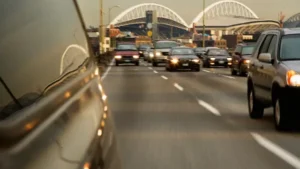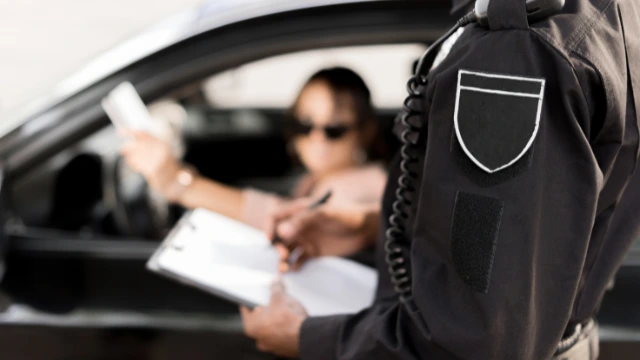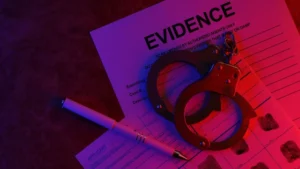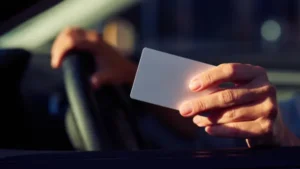

The Reality of Traffic Tickets
Picture this: You’re on your way home after a tiring day, enjoying your favorite song, when out of nowhere, flashing red and blue lights appear in your rearview mirror. Your heart races. A police officer approaches and hands you a traffic citation for speeding. You feel frustrated—maybe you didn’t realize how fast you were going, or maybe the officer made a mistake. Now, you have to decide: Should you pay the fine or fight the ticket?
Traffic tickets might seem like a small hassle, but they can result in steep fines, points on your license, higher insurance premiums, and even a suspended license if violations pile up. Understanding how to defend against a traffic citation can save you money and protect your driving record.
Traffic Citations: What You Need to Know
A traffic citation is a legal notice issued by law enforcement for violating traffic laws. While some violations are minor infractions, others can carry serious penalties. Common types of traffic citations include:
- Speeding tickets – One of the most frequently issued violations, often detected by radar or speed cameras.
- Running a red light or stop sign – Failing to obey traffic signals can lead to fines and points on your record.
- Reckless or careless driving – Charges can escalate based on the severity of the violation.
- Driving without insurance or a valid license – Can result in court appearances and potential license suspension.
- Failure to yield or improper lane changes – Often issued when accidents or near-misses occur.
Traffic citations are more than just a financial burden. In many states, accumulating too many points can lead to a license suspension, affecting your ability to drive legally.
Legal Representation: Why Hiring a Lawyer Can Help
Many drivers assume that paying a traffic ticket is the easiest way to resolve the issue. However, in some cases, legal representation can help you reduce or dismiss the charges. A skilled traffic attorney can:
- Challenge the officer’s observations – Police officers are human and make mistakes. A lawyer can question their account of the event.
- Examine evidence – If a speed radar was used, an attorney may request calibration records to check for inaccuracies.
- Negotiate reduced charges – In many cases, attorneys can negotiate to lower the charges or avoid points on your record.
- Represent you in court – If a hearing is required, having an experienced lawyer can increase your chances of success.
In some states, hiring a lawyer for a traffic violation can help you avoid appearing in court altogether, saving you time and stress.
How to Defend Against a Traffic Ticket
Fighting a traffic ticket is not impossible, but it requires a strategic approach. Here’s how drivers can challenge their citations:
1. Questioning the Officer’s Perspective
Law enforcement officers rely on observation to issue many citations. However, visual estimations can be subjective and inaccurate. If an officer claims you were speeding, but no radar or speed camera evidence exists, you may be able to argue that their perception was flawed.
2. Checking for Errors in the Citation
Clerical errors—such as incorrect dates, times, or vehicle information—could invalidate a ticket. If there’s a factual mistake on the citation, it may be dismissed in court.
3. Using Traffic Camera Footage or GPS Data
In today’s digital age, many drivers use dashcams or GPS devices that record their speed and location. If you can provide concrete evidence that contradicts the officer’s claim, you may have grounds for dismissal.
4. Proving Necessity or Emergency
If you were speeding to avoid an accident or responding to a medical emergency, this could be a valid defense. Courts consider circumstances where a driver’s actions were justified to prevent greater harm.
5. Questioning Radar and Speed Detection Devices
Radar guns must be properly calibrated and maintained to ensure accuracy. If records show that the equipment was not recently tested, the results may be unreliable.
Case Study: Beating a Speeding Ticket in Court
Background
David, a 40-year-old sales executive, was pulled over for allegedly driving 15 mph over the speed limit in a school zone. He received a $250 fine and three points on his license, which would have increased his insurance premiums. Believing the ticket was unfair, he decided to fight it in court.
Defense Strategy
David’s lawyer used the following defense strategies:
- Requesting Calibration Records – The lawyer asked for documentation proving the officer’s radar gun had been calibrated recently. The records showed that the device had not been tested in over six months, which raised doubts about its accuracy.
- Challenging Visibility Conditions – On the day of the ticket, heavy rain affected visibility. David’s lawyer argued that the officer’s ability to estimate speed visually was compromised by poor weather conditions.
- Providing GPS Data – David’s vehicle had a built-in GPS that recorded his speed, showing that he was traveling only 5 mph over the limit, not 15 mph.
Outcome
The judge ruled in David’s favor, dismissing the ticket entirely. This prevented points on his license and kept his insurance rates from increasing.
Conclusion
Traffic tickets may seem minor, but they can have lasting consequences. Whether you were unfairly cited or want to avoid increased insurance rates, understanding your legal rights can make all the difference. If you’re facing a traffic violation, consulting an experienced traffic attorney can help protect your record and minimize penalties.
Frequently Asked Questions (FAQs)
- Is it worth hiring a lawyer for a traffic ticket? If the violation carries hefty fines, points, or insurance increases, hiring a lawyer can help reduce or dismiss the charges.
- Can traffic tickets be removed from my record? Many states allow drivers to attend traffic school to remove points or reduce penalties.
- Do all traffic tickets require a court appearance? Not necessarily. Minor infractions can often be paid online, but fighting a ticket in court may be necessary to avoid long-term consequences.
- What happens if I ignore a traffic ticket? Ignoring a ticket can result in additional fines, license suspension, or even a warrant for your arrest in severe cases.
- How do I know if a traffic ticket will affect my insurance? Insurance companies evaluate driving history, severity of the violation, and state laws to determine how a ticket impacts your rates.



